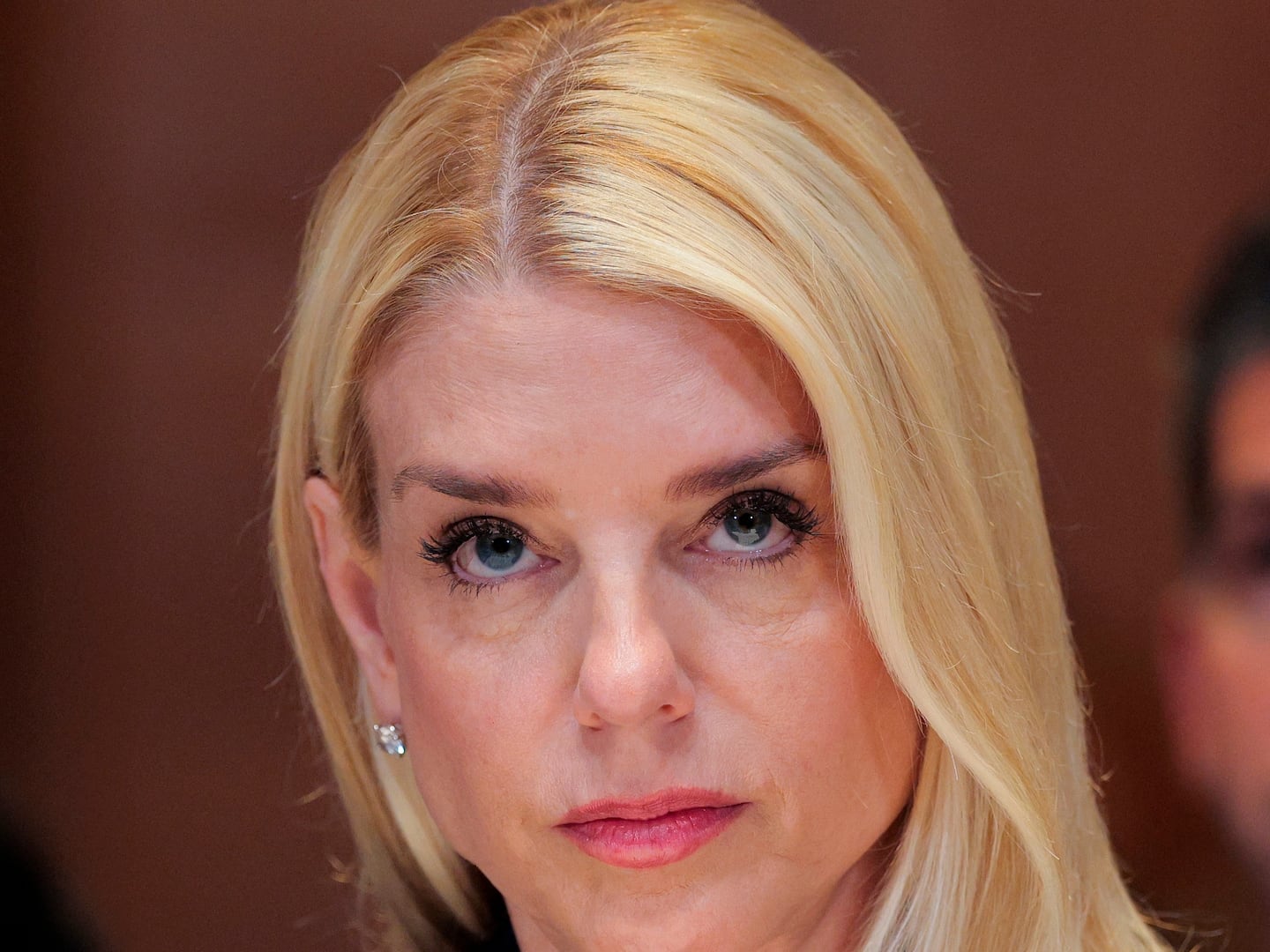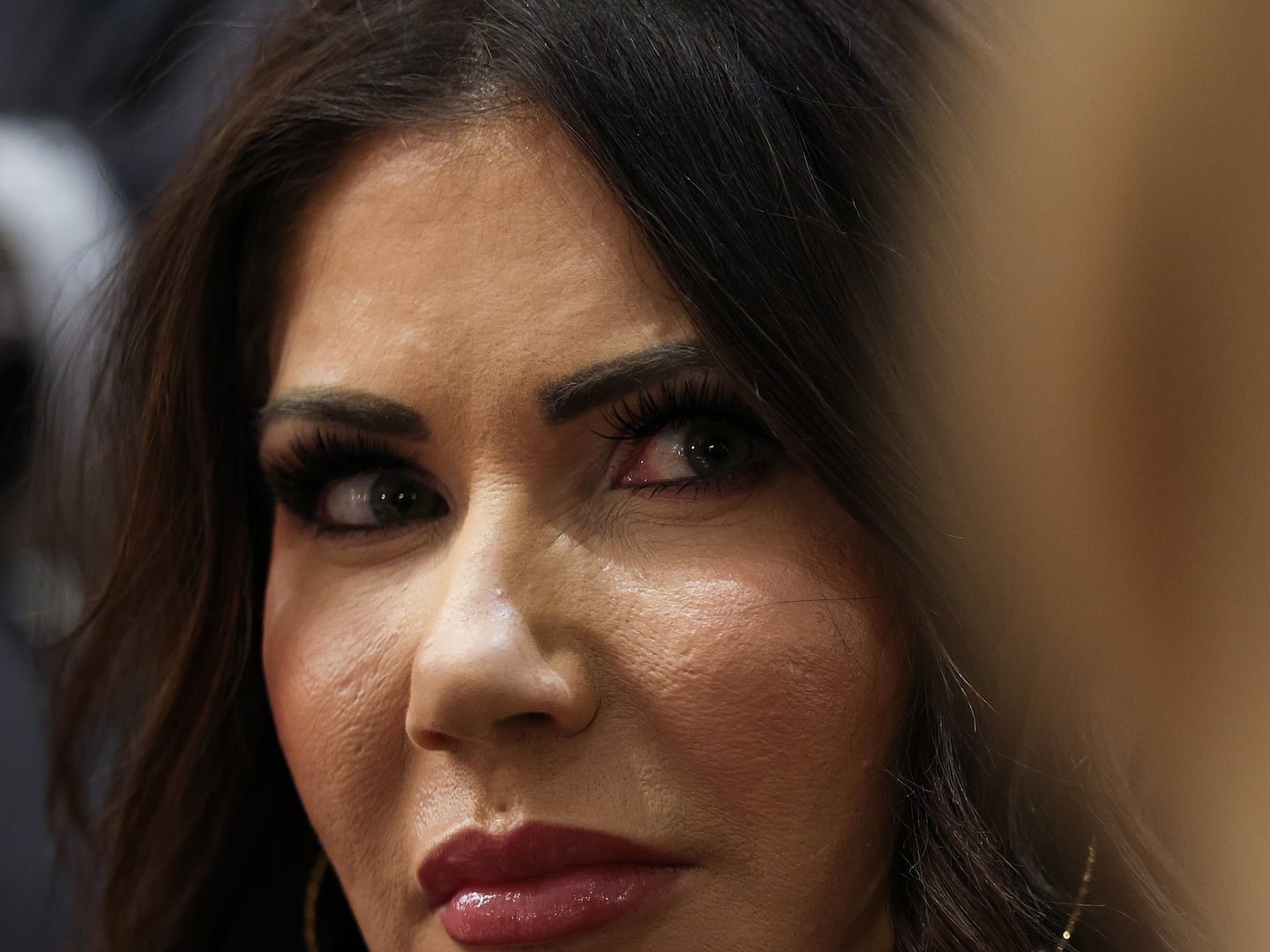Monday night’s a big night in this campaign season. In Kentucky, Alison Lundergan Grimes gets her one shot at Senate Minority Leader Mitch McConnell in a debate. I know most of the smart people have written the Democrat off. But a major Kentucky poll last week put her up two points. And she seems to be drawing big and enthusiastic crowds. And McConnell keeps making mistakes. In other words, there’s oxygen.
Grimes is going to hit her themes—that McConnell hasn’t delivered jobs to the state and that he’s a big part of the Washington problem. McConnell will hit his—that GrimesObama isObama aObama shiftyObama DemocratObama by the way did I mention this guy Obama? But as we all know, if there ever is a clear victory in any of these debates, it usually come down to a moment, one good or bad moment that gets replayed over and over on local TV news and masticated on the state’s political radio shows. And for Grimes, unless she has a great putdown stocked away she’s been working on, fate has recently decreed what that moment is likely to be.
As you should know by now, Grimes has been refusing to say whether she voted for President Obama. It’s been embarrassing. Chuck Todd even said she’d “disqualified herself.” That’s a bit over the top, but it was plenty bad. And of course she is going to be asked this question on Monday night, and of course everyone is going to be waiting, and of course she is going to have to be ready.
I’ve been a reporter covering these things. In 2000, when Hillary Clinton was debating Rick Lazio in Buffalo, we all knew that she was only partially debating Lazio. She was also debating Tim Russert, the moderator who had been a Javert-like figure in his capacity as Meet the Press host vis-à-vis the Clintons and the Lewinsky scandal. So all the reporters gathered in the studio of Buffalo’s public television station that September night were waiting for the moment when Russert would hit Hillary with the Monica question.
When it happened, interestingly, it was Russert, not Hillary, who blew it. He asked her if she regretted “misleading the American people” that first morning she went on the Today show to talk about the “vast right-wing conspiracy” out to get Bill. But she believed what she was saying at the time, and everyone accepted that. So Russert’s over-aggressive question helped Clinton, as did Lazio’s subsequent pushiness.
Grimes can’t count on that. She will likely get a tough but fair and straightforward question: i.e., Why won’t you answer the question? You’re a Democrat, what are you ashamed of? And at that moment—that pivotal moment in her career and life, and potentially that crucial moment for the contemporary Democratic Party and indeed for Obama himself, inasmuch as how Grimes handles the moment could help decide whether Obama has to deal with Harry Reid or McConnell for the last two years of his public life—what must she do?
The temptation here for people like me is to insist that she should stand up and say “you’re damn right I did,” and Obamacare this and Kynect that. I’d love for her to say that, but alas the reality is such these days that the opposite might be better. All the McConnell campaign wants at this point is a three-second clip of her saying, “OK, maybe I did vote for him, but...” That would be edited down to “I did vote for him” and replayed nine jillion times in attack ads.
One can see the argument that she shouldn’t give McConnell the satisfaction of having that clip. So maybe she has to throw the president under the bus. Obama got 41 percent of the vote in Kentucky in 2008, and 38 percent in 2012. His approval rating right now is 30 percent. Behind numbers like that, it’s kind of hard for her to say, “You’re damn right I did.” But what exactly should she say?
Here we arrive at what I believe to be a central tenet of campaigning that lots of candidates forget when they’re under the klieg lights: When you have to deal with an uncomfortable reality, you can do it in a way that suggests to voters that you’re weak and waffle-ish, or you can do it a way that makes you look like you have “character.”
What would character mean in this case? It means answering the question in a way that reduces it to the importance it deserves. Because it’s an unimportant question. We all know Grimes voted for Obama. Of course she did. She’s a Democratic office-holder. There is a way for her to acknowledge this winkingly without really admitting it while saying to voters, “Isn’t this whole thing kind of ridiculous?” That’s the best play she has: Turn the whole question into an indictment of McConnell and the gotcha media and the whole electoral process. This was done masterfully by Newt Gingrich in the debate before the South Carolina primary. I was in that hall. The rage of the crowd—on his behalf, as he answered CNN’s John King’s question about his alleged open marriage, was as palpable as anything I’ve ever felt.
Gingrich emerged that night looking bigger than King, bigger than everyone on stage, and he won the primary. Granted, voters tend to see the personal life as more off limits. But if Grimes can summon some outrage within her that’s something like what Newt did that night, she can take the Obama question out of the conversation once and for all.






